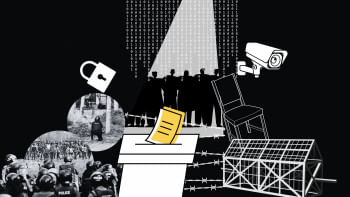To achieve progress, we need bureaucracy-academia synergy

Sound partnership between bureaucracy and academia is essential for establishing a strong governance framework. Bureaucracy, frequently regarded as the driving force behind policy execution, provides practical administrative experience, while academia offers research-driven insights and innovative concepts. Enhancing this partnership is crucial for fostering informed decision-making, effective policy execution, and comprehensive national advancement.
Bureaucrats are tasked with the implementation of laws, formulation of policies, management of public services, and supervision of national development initiatives. They act as intermediaries between political authorities and the citizenry, ensuring that governmental efforts yield concrete results. However, bureaucratic bodies often encounter obstacles such as a lack of innovation and limited exposure to contemporary research and global best practices. On the other hand, academia is pivotal in knowledge creation, research activities, and supplying the intellectual resources essential for national development. Grounded in evidence-based research, academic institutions can provide fresh viewpoints on governance.
The advantages of bureaucracy-academia collaboration warrant discussion. A primary benefit of this partnership is the enhancement of policymaking through informed and evidence-based approaches. Bureaucrats, who frequently depend on anecdotal evidence or political mandates, stand to gain significantly from the data, analyses, and research produced by academics. Conversely, academics can acquire valuable insights into the operational challenges and limitations encountered by bureaucratic entities, resulting in research that is more grounded in reality. Free from the daily operational pressures of governance, academics are positioned to think creatively and propose innovative solutions to national challenges. Bureaucrats can then tailor these innovations to fit local contexts, ensuring their practicality and feasibility.
In Bangladesh, while the benefits of collaboration between bureaucracy and academia are clear, several obstacles have emerged as well. There is a notable absence of formal mechanisms that promote consistent engagement between bureaucrats and academics. Often, any collaborative efforts that do take place are irregular and unstructured, which diminishes their overall impact. Importantly, the academic community in Bangladesh, similar to many other nations, tends to be detached from practical issues. Researchers may engage in theoretical inquiries that don't necessarily yield practical solutions for policymakers. Concurrently, bureaucratic entities frequently function within a closed framework, where hierarchical systems and strict protocols restrict outside engagement. Additionally, academics typically adopt a long-term perspective, concentrating on systemic challenges, whereas bureaucrats are often motivated by immediate objectives, such as executing the current government's policies. This disparity can also obstruct effective collaboration.
The academic community in Bangladesh, similar to many other nations, tends to be detached from practical issues. Researchers may engage in theoretical inquiries that don't necessarily yield practical solutions for policymakers. Concurrently, bureaucratic entities frequently function within a closed framework, where hierarchical systems and strict protocols restrict outside engagement.
Global evidence underscores the necessity for such partnerships. For example, in the United States, the collaboration between government and academia has a rich history, particularly through think tanks like the Brookings Institution, RAND Corporation, and the Heritage Foundation. These organisations serve as intermediaries, offering research-driven policy recommendations that connect academic insights with bureaucratic needs. For example, the RAND Corporation has significantly shaped US policies in areas such as defence, education, health and labour through its data-driven research and analysis. South Korea, too, exemplifies a successful model of governance and economic advancement that is closely linked to institutional collaboration between bureaucracy and academia. The Korea Development Institute (KDI) stands out as a key institution, established to deliver research-informed guidance to the government on critical issues including economic growth, industrialisation and educational reform.
Drawing from global experiences and local contexts, we can formulate specific strategies. Bangladesh might consider establishing formal channels for continuous dialogue between bureaucracy and academia. This could take the shape of joint committees, policy think tanks or task forces that unite both sectors to address particular national issues. Additionally, the creation of independent or semi-autonomous research institutions that act as intermediaries between academia and bureaucracy could facilitate ongoing collaboration. Such think tanks would provide evidence-based recommendations for policymaking while maintaining political impartiality. Moreover, the establishment of dedicated policy research units within bureaucratic agencies would further institutionalise the partnership with academia. The existing Reform Management and Policy Research Unit of the government should be effectively implemented across all ministries, receiving the necessary attention it deserves.
The government has the opportunity to finance collaborative research projects that unite bureaucratic institutions and universities. Such projects would promote teamwork on critical national issues. Establishing knowledge hubs or centres of excellence where academic and bureaucratic entities work together on research, policy formulation and innovation would also cultivate a spirit of partnership. These centres could act as venues for policy discussions, joint research efforts, and the sharing of knowledge. Furthermore, government agencies and funding organisations could motivate academic researchers to engage in policy-relevant studies by providing grants, accolades, and recognition for research that aids national development.
In Bangladesh, the synergy between bureaucracy and academia holds significant promise for advancing national progress. By leveraging the unique strengths of both sectors, the nation can formulate more effective policies and stimulate innovation. Enhancing this collaboration will not only improve governance quality but also support sustainable national development in Bangladesh.
Dr Mohammad Kamrul Hasan is a public administration researcher and practitioner. He can be reached at [email protected].
Views expressed in this article are the author's own.
Follow The Daily Star Opinion on Facebook for the latest opinions, commentaries and analyses by experts and professionals. To contribute your article or letter to The Daily Star Opinion, see our guidelines for submission.

 For all latest news, follow The Daily Star's Google News channel.
For all latest news, follow The Daily Star's Google News channel. 







Comments